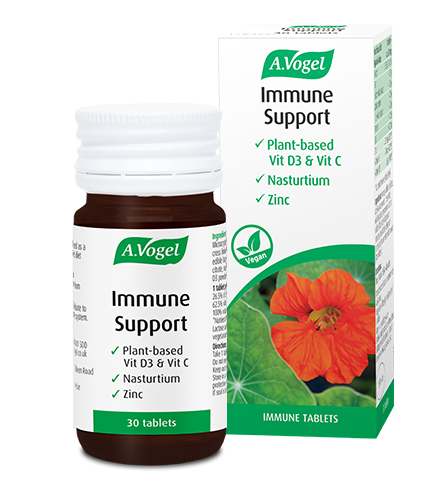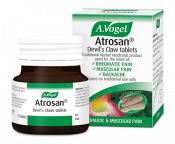How does vitamin D affect inflammation?
There are multiple benefits associated with good vitamin D intake, from improved mood to a reduction in symptoms connected with digestive issues like IBS. However, you may be particularly interested to learn that vitamin D can influence inflammation. In fact, vitamin D deficiency is associated with several inflammatory diseases.1
To understand more about this link between vitamin D and inflammation, in this blog I will examine the following questions:
- Can vitamin D reduce inflammation?
- How does vitamin D influence inflammation?
- Who's at risk of a vitamin D deficiency?
- Where can vitamin D be sourced?
Can vitamin D reduce inflammation?
In research, vitamin D was found to lower markers of inflammation in those with highly inflammatory conditions.2
In random control trials, sufficient levels of vitamin D were associated with a reduction in inflammatory markers.3
| Remember! It is recommended that we take in 10μg (400IU) of vitamin D daily. |
How does vitamin D reduce inflammation?
Vitamin D3 may be an important regulator of the body's inflammatory response and so, without sufficient levels of it, inflammation becomes harder to control.
It is thought that vitamin D works to regulate cytokines and TNF (tumour necrosis factor), both of which are small proteins involved in inflammation.4 TNF, in particular, acts as a kind of signal, triggering other cells to take part in the inflammatory process.
| Did you know? Research shows that magnesium can optimise vitamin D status, raising it in people with deficient levels and lowering it in people with high levels.5 |
Who’s at risk of a vitamin D deficiency?
Low vitamin D status can make itself apparent through various symptoms, including slow wound healing, fatigue, joint pain and low mood.
Unfortunately, there are a few groups of people who may be more at risk of developing a vitamin D deficiency and, therefore, these issues. The risk factors include:
The elderly - especially if spending a lot of time indoors (for example, if living in a care home, or if the individual is frail and cannot get outdoors often).
Being overweight – excess adipose tissue may lead the body to store vitamin D away, making it less available for use.
Those using a lot of sun block – this means the skin is not able to manufacture much vitamin D from the sun.
Being vegan – vitamin D can be found in fish and dairy foods like yoghurt.
Office workers – especially if you don't use your lunch break to get outdoors or experience the fresh air after working hours.
Those wearing long clothing - anyone wearing clothing that covers up most of their skin will have less exposure to the sun.
Those with dark skin – it is harder for the body to manufacture vitamin D from sunlight.
Those living in northern latitudes - here the hours of sunlight are fewer, which means we may have less exposure to sunlight.
|
Foods sources of vitamin D
|
Where to get your vitamin D
Vitamin D can be easily soaked up from sunlight during the summer months. In the winter months, though, we may need a little top up.
Immune Support provides 200 iu of vitamin D to help keep levels steady. In addition, it is a good source of vitamin C and zinc, which together support the normal functioning of the immune system and reduce tiredness during periods of sickness.
As I am sure we all know, these kinds of illnesses are, unfortunately, more common in winter; so, now is definitely the time to give your body a little extra support.
The vitamin D3 found in Immune Support is sourced from reindeer lichen. Lichen is the result of a symbiotic process (symbiosis) between algae and fungi. Reindeer lichen, in particular, is very good at producing vitamin D in response to sunlight and storing it without very much loss.
A.Vogel Immune Support Tablets with Vitamin D, Vitamin C and Zinc, 30 tablets
£13.99 (30 tablets) In Stock
References
1 https://www.ncbi.nlm.nih.gov/pmc/articles/PMC4070857/
2 https://www.ncbi.nlm.nih.gov/pmc/articles/PMC5188461/
3 https://pubmed.ncbi.nlm.nih.gov/26413186/
4 https://www.ncbi.nlm.nih.gov/pmc/articles/PMC6164284/






 Looking to support your immune system? Well, look no further!
Looking to support your immune system? Well, look no further!

